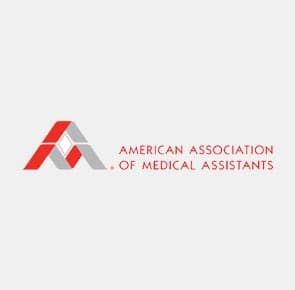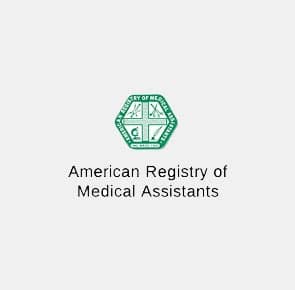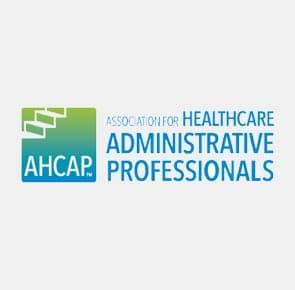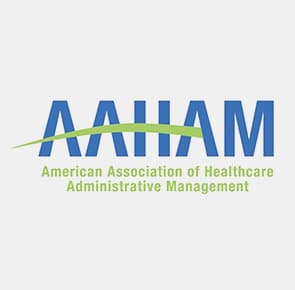What Does a Medical Assistant Career Entail?
Embark on your medical assistant career in two years or less. You don’t have to spend four years or more in school before you begin your career. If you attend a trade school to earn your degree or certificate, you’ll be able to land a job and begin working much more quickly.
Once you begin working, you’ll find that each day is very different. Depending on your specialization, if you choose one, you may have direct contact with patients or be handling mostly administrative tasks. Your role as a medical assistant may sometimes feel like you’re at the “bottom of the totem pole” but think about the amount and types of work you’ll handle; if you weren’t the person handling them, managers, nurses, and doctors would have to do them. In your role, you’ll help to make daily patient care processes run much more smoothly.

Components of a Successful Medical Assistant Career
Before you walk into your job on your first day, understand that you’ll be held to a much higher professional standard than entry-level employees elsewhere. You need to know and comply with the HIPAA Act. Patients place their confidence in you; knowing you’ll respect their confidentiality will go far in allowing them to trust you.
You’ll have to exercise daily drive and motivation to get to your classes every day. In your new position you’ll need to be loyal, courteous, dependable, show initiative, credibility, be flexible, optimistic, and respect patient confidentiality.
Featured Online Programs
What Do They Do?
 You may cover mostly clinical responsibilities. Or you may have been hired to deal more with administrative tasks. No matter what your role, here’s a look at your daily work as a medical assistant.
You may cover mostly clinical responsibilities. Or you may have been hired to deal more with administrative tasks. No matter what your role, here’s a look at your daily work as a medical assistant.
Expect to be called to help where nurses are busy. You may draw blood or take care of lab tests or you may be assigned to handle the phones or deal with medical billing and coding.
Typical Educational Requirements
Before you begin your education, let alone start working in a doctor’s office, you need to complete several steps.
First, have either your high school diploma or a GED if you didn’t complete high school.
Next, earn a medical assistant certificate so you can step into this profession. In some states, certification at a minimum, is required. Or you may want to enter a full-fledged degree program at a two-year trade school. Here, you’ll receive instruction and training in the role you want.
Typical Certifications Needed
First, you can choose a certificate program, rather than a degree program. If you decide to advance, you may decide to earn an Associate in Applied Science (AAS) in medical assisting.
Once you graduate, you can earn other certifications after sitting an exam:
- Basic Life Support for Healthcare Providers
- Certified Medical Assistant
- Certified Phlebotomy
- Registered Medical Assistant
- Certified Electrocardiography
- Certified Clinical Medical Assistant
Once you earn one of these certificates, you’ll be able to apply for almost any position you want.
Academic Standards for a Degree/Certification
Before graduating, you’ll have to show that you have met all required academic standards of the medical assisting program:
- Understand basic physiology, anatomy, and disease processes of the human body
- Show a basic knowledge of ethics and laws as they concern the medical office
- Make exam rooms ready for patients; prepare patients for physicals by using established procedures (vital signs) and using sanitizing techniques to prevent infections
- Carry out basic medical office functions such as scheduling, insurance, reimbursement, coding, accounting, and bookkeeping
- Show academic skills; writing, oral communication, literacy, and information literacy
- Look for ways to complete educational and career development
- Complete Registered Medical Assistant or Certified Medical Assistant exams with passing scores.
Exam/Experience Needed
To be legally able to work in a medical office, you need certification from your state. Once you graduate, get ready to begin studying again. You’ll take the certification exam required by your state and you may have to do so within a certain timeframe, so make sure you stay on top of things. Study the testing subjects and take the exam on testing day. Once you’ve taken the exam, your official scores should be sent to you.
Get as much experience as you can. Your program may require that you take part in an unpaid externship or internship. These are required so you can gain the necessary experience. Your state or medical assistant program will require you to complete a specific number of hours.
Medical Assistant Degree and Certification Options
Clinical Medical Assistant
As a clinical medical assistant, you’ll assist a doctor by carrying out clinical jobs. You’ll need to know how to prepare patients for exams and treatment, do routine testing, and know about phlebotomy. You’ll also need to understand diagnostic testing. Expect to learn about pharmacology, the proper use of medications, how to take and document vital signs, and cardiology and how to place EKG leads.
Courses:
- Care and Safety of Patients
- Responsibility of the Clinical Medical Assistant
- Introduction to Healthcare Facilities
- Circulation of the Heart and Blood Vessels
- Aseptic Techniques, Infection Prevention, Universal Precautions, Use and Disposal of Biohazards and Sharps
Administrative Medical Assistant
In this role, you’ll be helping to manage the front end of a physician’s practice. You’ll be responsible for medical billing, administration, and many of the business aspects of the clinic. Your educational training will teach you about HIPAA and how to apply this law when obtaining and releasing medical information. You’ll learn how to develop professional interpersonal skills with a wide range of personalities and patients. You’ll manage and process information and you’ll also assist in the organization and design of communication procedures.
Courses:
- Medical Terminology
- Healthcare Reimbursement/Billing Emphasis
- Computing Skills
- Workplace Mathematics
- Medical Office Procedures/Electronic Records
Specialized Medical Assistant
When you choose a medical field in which to specialize as a medical assistant, you’ll be choosing from the same fields as medical students. You may choose orthopedics, pediatrics, or obstetrics and gynecology. As an OB-GYN medical assistant student, you’ll be able to earn more certifications. If you get the chance to participate in an externship, think about choosing a medical assistant specialization. In your chosen specialization, you will be able to take on duties that are related to your chosen specialty.
Courses:
- OB/GYN and Pediatrics
- Legal and Ethics/The Medical Record
- Circulatory System
- Microbiology/Minor Surgery Skills
Online Associates and Certification Cost with Ranges
Medical assisting students who want to earn a certificate rather than an associate degree will pay around $15,000 for their program as of the 2017-2018 academic year.
If the medical assisting student opts for an associate degree, they will pay in-state tuition of $9,400 and out-of-state of around $20,500.
Find Online Medical Assisting Programs
Potential Careers and Salaries for Medical Assistant Graduates
Even if you go to college, but don’t earn a degree, you’ll see a small benefit in your weekly wages. A high school graduate with no college credits can expect to earn about $700/week before taxes. That same graduate with some college credits will earn a little more than $750/week. If that person goes on to earn an associate degree, they will be able to increase their earnings to roughly $825/week.
Median Salaries by Occupation
| Occupation | Entry-Level | Mid-Career | Late-Career |
|---|---|---|---|
| Certified Clinical Medical Assistant | $30,500 | $35,800 | $38,700 |
| Administrative Assistant | $35,800 | $40,000 | $44,500 |
| Medical Assistant (Not Certified) | $30,800 | $34,800 | $39,500 |
| Medical Office Assistant | $31,000 | $29,300 | $31,200 |
Important Questions to Ask (FAQ)
How Long Does It Take to Earn a Degree or Certification Online?
 Entering a trade school to major in a medical assistant program won’t take you very long. While a traditional, four-year college means that you’ll be in school for four years (or more), a medical assistant program will take much less time.
Entering a trade school to major in a medical assistant program won’t take you very long. While a traditional, four-year college means that you’ll be in school for four years (or more), a medical assistant program will take much less time.
If you opt for a diploma, you’ll be in school for about 12 months. If you choose an associate degree, you’ll be in school for up to two years. With this option, you’ll have a wider set of career options from which to choose.
Finally, if you choose certification (meaning you’ll be a certified medical assistant, or CMA), you may be in school for a little longer than 12 months.
How Much Does a Degree or Certificate Cost?
Depending on where you live in the country, you can expect to pay anywhere from $2,500 to more than $10,000. Your choice of program will also affect how much tuition you pay.
If you look at the entire two-year medical assistant program, expect to pay $33,720 at one school; your books and supplies would cost around $3,200. At another school, you may pay $12,482, while books and supplies would cost $507.
Once you graduate and get ready to take your certification exam, you’ll have to pay for an exam fee. All of this is worth it if you emerge at the other end with a viable, lucrative career.
How Many Students Graduate “On Time,” in 12 or 24 Months?
For 2017, graduation rates were at 28% of all students in trade schools or community colleges. These students graduated in 150% of the “normal” amount of time required for their chosen program.
What Kind of Accreditation Does the Online Program Hold? How is it Regarded in the Field?
 Trade schools, community colleges and vocational schools should hold regional accreditation, which highlights the high quality of the education and faculty.
Trade schools, community colleges and vocational schools should hold regional accreditation, which highlights the high quality of the education and faculty.
Medical assistant programs should be accredited by the Commission on Accreditation of Allied Health Education Programs (CAAHEP). CAAHEP is highly regarded in the medical assistant field. It is recommended by the Medical Assisting Education Review Board of the American Association of Medical Assistance Endowment (MAERB-AAMAE).
Medical Assistant Trade School Scholarships
-
High School Presidential Scholarship
Amount: N/A
Deadline: Varies
Intended for high-performing high school students who plan to go farther in their educations. Individual eligibility is determined on academic performance (test scores, high school grades). This is not a scholarship but rather a recognition award offered annually by the U.S. Department of Education. Even if it doesn’t pay an amount, it’s an excellent addition to your resume.
-
Adrian and Corena Swanier Education Scholarship
Amount: $1,000
Deadline: March 31
These scholarships are for the children of members of the military or veterans. The $1,000 award can be used to pay for any four-year, vocational degree, or a technical certificate. Applicants must be children under the age of 21.
-
Stanley S. Bazant Scholarship
Amount: Varies
Deadline: Varies
Students enrolling in a technical program of study are eligible to apply for this scholarship. Interested applicants must meet two qualifications before applying: They must submit their admission paperwork and pay a $25 application fee. Second, they must plan to enroll in a technical program only.
-
Maxine Williams Scholarship
Amount: $1,000 (1-year membership in the AAMA)
Deadline: February 15
This scholarship comes with an unusual twist; only Commission on Accreditation of Allied Health Education Programs (CAAHEP) program directors may apply for the scholarship on behalf of a CAAHEP student. Students must be enrolled in a medical assisting program and complete either one quarter or semester in a college-level medical assisting program that is accredited by CAAHEP. In addition, that student should hold a GPA of 3.0 or higher. Students who are selected for this scholarship receive a $1,000 award and a one-year membership in the American Association of Medical Assistants (AAMA) endowment.
Professional Medical Assistant Trade School Organizations
- AAMA
- ARMA
- AHCAP
- MSSMA
- AAHAM

AAMA
American Association of Medical Assistants
AAMA helps medical assistant professionals with education, certification, acknowledgement of credentials, networking, and advocacy for high-quality patient-centered health care. AAMA members receive discounts for CMA certification exams, a complimentary subscription to CMA Today magazine, reduced rates for continuing education credits, news on legislation that may affect organization members, and access to volunteer opportunities. New members can choose local chapters so they can make friends, network, and become more involved in their communities.

ARMA
American Registry of Medical Assistants
This national registry contains members in all 50 states. ARMA works to advance medical assistants’ status. When a medical assistant joins, they show their commitment to maintaining professionalism in their role. The overarching goal is for medical assistants to gain recognition of their professional status within the healthcare field. ARMA members represent a range of different areas within the allied health professions.

AHCAP
Association of Healthcare Administrative Professionals
AHCAP advances the professional development and excellence of healthcare administrative professionals through education, communication, recognition, and advocacy. Association members receive access to private forums, monthly news, education, professional development opportunities, and a membership directory. AHCAP also provides career assistance and networking events for members.

MSSMA
Massachusetts State Society of Medical Assistants
MSSMA is the AAMA state chapter for Massachusetts. State association members receive access to a job listing, search and help webpages, and other resources. Fall River Campus students can participate in the Fall River Chapter. Malden Campus students can take part in the Greater Boston Chapter.

AAHAM
American Association of Healthcare Administrative Management
Members of this association take advantage of a resource center when they need educational opportunities, information, and advocacy. Professional development is the largest goal of AAHAM, with members gaining access to publications, professional certification, seminars, conferences, networking, and chances to increase their skills and knowledge.
Choosing an Accredited Vocational School
Yes, accreditation is vital. If you want to be able to use federal financial aid and be considered for a higher salary, then an accredited school and medical assisting program may help you to get what you need. An accredited trade school has earned a standing that shows proof of the quality of their academics and faculty. Look for school-wide accreditation and accreditation of the medical assisting program.
Online vs. On-Campus vs. Hybrid
On-campus courses allow you to meet your instructors and fellow classmates face-to-face. You’ll have more structure, if this is something you need to stay on-track. However, if you have an emergency that means you can’t attend a class, then that class won’t be delayed for you.
In online classes, you have the flexibility you need to take care of that unexpected event that keeps you from logging in to do classwork when you normally would. It will still be available for a few weeks post-emergency. However, you won’t be able to meet your professors or classmates in-person.
In hybrid classes, you have a mix of both formats. You’ll take most of your classes online but either attend a few of them on campus or go to meetings once or twice a year in a “residence” format.
Additional Questions
Does the Vocational School Have Post-Graduate Job Placement Assistance?
As you get closer to graduation, you’ll have to look for a job, write resumes and cover letters, and take part in job interviews. If you’ve never done this before, you may not feel very confident in your resume-writing, cover letter-writing, or interview skills. This is where a Career and Placement Office on your campus comes in. It is staffed with professionals whose only job is to help you with everything you’re not sure of.
Why You Need to Consider the Overall National Rankings of the School and its Effects on Your Career or Salary
You’ll find good community colleges and those that aren’t so good. Speed up your search for the school that’s right for you by reading rankings of community colleges in your area. Weed out the worst schools and focus on applying to the better schools. Different internet publications provide these comparisons for you. They take different areas and discuss them for you, from academics to quality and cost. You’ll want to refer to College ScoreCard while you’re looking for this information, no matter what you decide.
